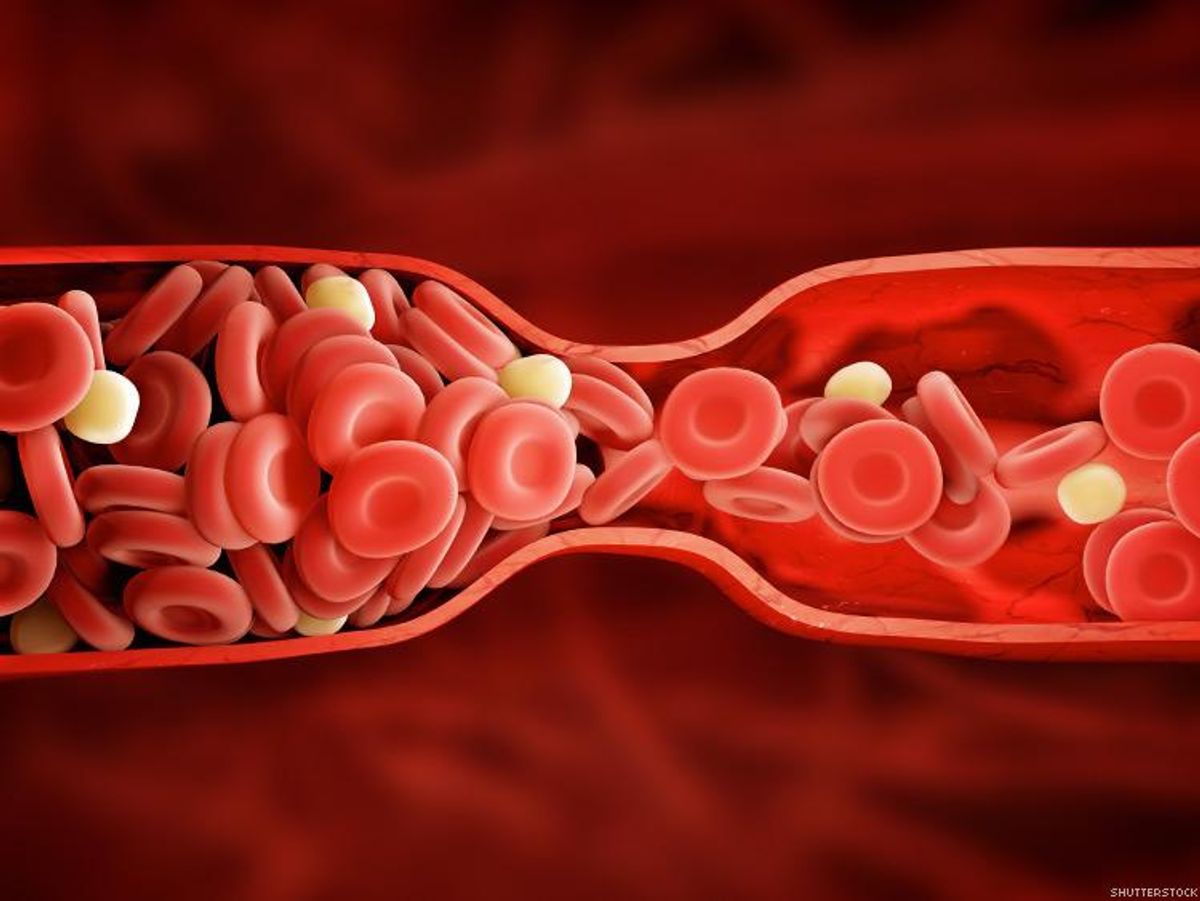Treatment
HIV-Positive People 10 Times More Likely to Get Thrombosis

They're more susceptible to an intense blood clot in the vein, but that doesn't mean more drugs are needed.
May 30 2017 7:54 PM EST
July 29 2021 9:56 PM EST
By continuing to use our site, you agree to our Private Policy and Terms of Use.

They're more susceptible to an intense blood clot in the vein, but that doesn't mean more drugs are needed.
Despite the fact that HIV-positive people are up to 10 times more likely to have venous thrombosis, according to studies, no further research has addressed the effects they might have when combining antiretroviral medications with warfarin, a blood thinner used to treat thrombosis.
Though it’s been led to believe that HIV-positive need to increase their warfarin dosage, a study published in BMJ Open shows they require the same amount as any HIV-negative person.
In case you didn't know, VTW is described on Heart.orgas a blood clot that starts in a vein. It’s the third leading vascular diagnoses after heart attack and stroke, affecting around 300,000 to 600,000 Americans each year.
Deep vein thrombosis usually happens in a deep vein in the leg, sometimes in the arm or other veins. Pulmonary embolism happens when a DVT clot breaks free from a vein wall, travels to the lungs, and blocks some or all of the blood supply.
The study was led by Dr. B.S. Jackson of the University of Pretoria and Steve Biko Academic Hospital. It collected data from 234 people between 2013 and 2015 with acute DVT of the lower limb.
The group was mixed with those who were HIV-negative and HIV-positive, and all of them were taking warfarin to treat thrombosis, first using a slow regimen beginning with a loading dose of sodium/warfarin, then later into heavier doses.
After reviewing calculations, it was determined there was no significant difference in results as it related to dosage between HIV-positive people and HIV-negative people, except in the case of certain HIV-positive women on ART, who needed slightly higher doses of warfarin.
The investors then concluded: “It is recommended that warfarin dosing and coagulation monitoring be the same in the routine management of HIV-infected patients as for HIV-uninfected patients.”
A larger study might be needed to find more differences in warfarin requirements for HIV-positive people.